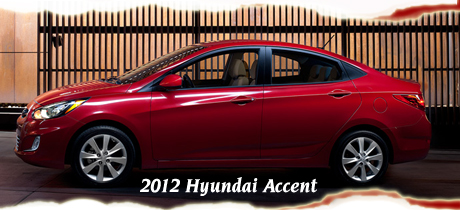

(“It’s been great to chat” didn’t quite land when we used it as a way to exit a boring conversation at a holiday party.) Others felt like instant canon (we agreed, for example, that text-message amnesty is granted after 72 hours).
#Nyt accent test professional
Then we took our own medicine - we implemented these rules in our professional and personal lives. From there, we created rigid, but not entirely inflexible, rules. We asked people instead what specific kinds of interactions or situations really made them anxious, afraid, uncertain, ashamed. So we started with the problems - not the obvious stuff, like whether it’s okay to wear a backpack on the subway or talk loudly on speakerphone in a restaurant (you know the answers there). That’s what I like to call wicked awesome.We wanted to help. While there might be some general regional features, and while there’s definitely a few varieties that fit a certain stereotype, there is no singular form of Maine English. Maine is home to a wonderful variety of accents and dialects that follow both geographic and social patterns. But as The New York Times’ dialect quiz shows, and subsequent research has confirmed, maybe I do after all. I never thought I talked much like a real Mainer. Adopting or bringing out some form of the dialect is an important way of distancing oneself from people from away and also serves to reinforce identity among locals.

However, I’ve heard people put on a stronger accent in situations where they want to indicate their Maine upbringing, even where they might not have used it before. Language is also an important means of asserting social belonging.

Code-switching is common, especially when stronger-dialect speakers might want to approximate the speech of their general-American-speaking interlocutors. Many Mainers also have more than one idiom at their disposal. You’re also less likely to hear a teenager ordering an “Italian” than you are to hear her ordering a “sub.” But there are some broad similarities-most people around here talk about their “camps” rather than their “cabins” and would use “rotary” instead of “traffic circle.” And that’s not even counting many native French speakers whose English is inflected by the language of their upbringing.Ī lot of these features seem to be intensified in older, more rural and lower-income people you’re unlikely to hear a Portland fisherman talk the same way as a CEO in the same city, for example. Among English speakers in Portland, you might hear an accent that sounds almost like the one from Boston: often marked by R-lessness except between the end of a word and another starting with a vowel, at the beginning of a word and in words like “nurse” and “bird.” In contrast, someone from Jonesport in Washington County might speak with a similar pattern, but without an r in “nurse” or “bird.” Move north to Aroostook County and you might even encounter English speakers whose vowels sound more Canadian than American. Just as Maine is divided into many different cultural regions, Mainers’ speech is also divided by geography, socioeconomic status and age. But as with many regional speech patterns, including the often-butchered and closely related Boston accent, most people outside the Pine Tree State and even some within it don’t really have a good grasp on what distinguishes the way we talk.Īs it turns out, if you look at the linguistic data more closely, Maine doesn’t have just one dialect of English. Some others might have picked up a few hackneyed words and phrases-things like “you can’t get there from here” or “wicked good”- from tourist guidebooks. While this quiz was fun, it also made me wonder: what is Maine’s dialect after all? Some people have a certain idea of it from humorous portrayals like in Marshall Dodge’s “Bert and I” stories or in Maine comedian Bob Marley’s sets. According to the map, I talked like a Mainer. At the end of the quiz, the state of Maine lit up bright red, along with a substantial part of Massachusetts and New Hampshire. I have always had a more or less General-American accent, closer to what news broadcasters might use than any particular local dialect-or so I thought. I took the quiz during my freshman year of high school, not expecting the algorithms to point to any geographic area very strongly.
#Nyt accent test series
In 2013, Josh Katz, a graphics editor for The New York Times, published an online dialect quiz entitled “How Y’all, Youse and You Guys Talk.” After you answer a series of questions about what term you might use for a specific concept and how you might pronounce a certain vowel, the quiz compiles your answers and shows you a heat map of what areas of the United States correspond to the linguistic features of your speech.


 0 kommentar(er)
0 kommentar(er)
